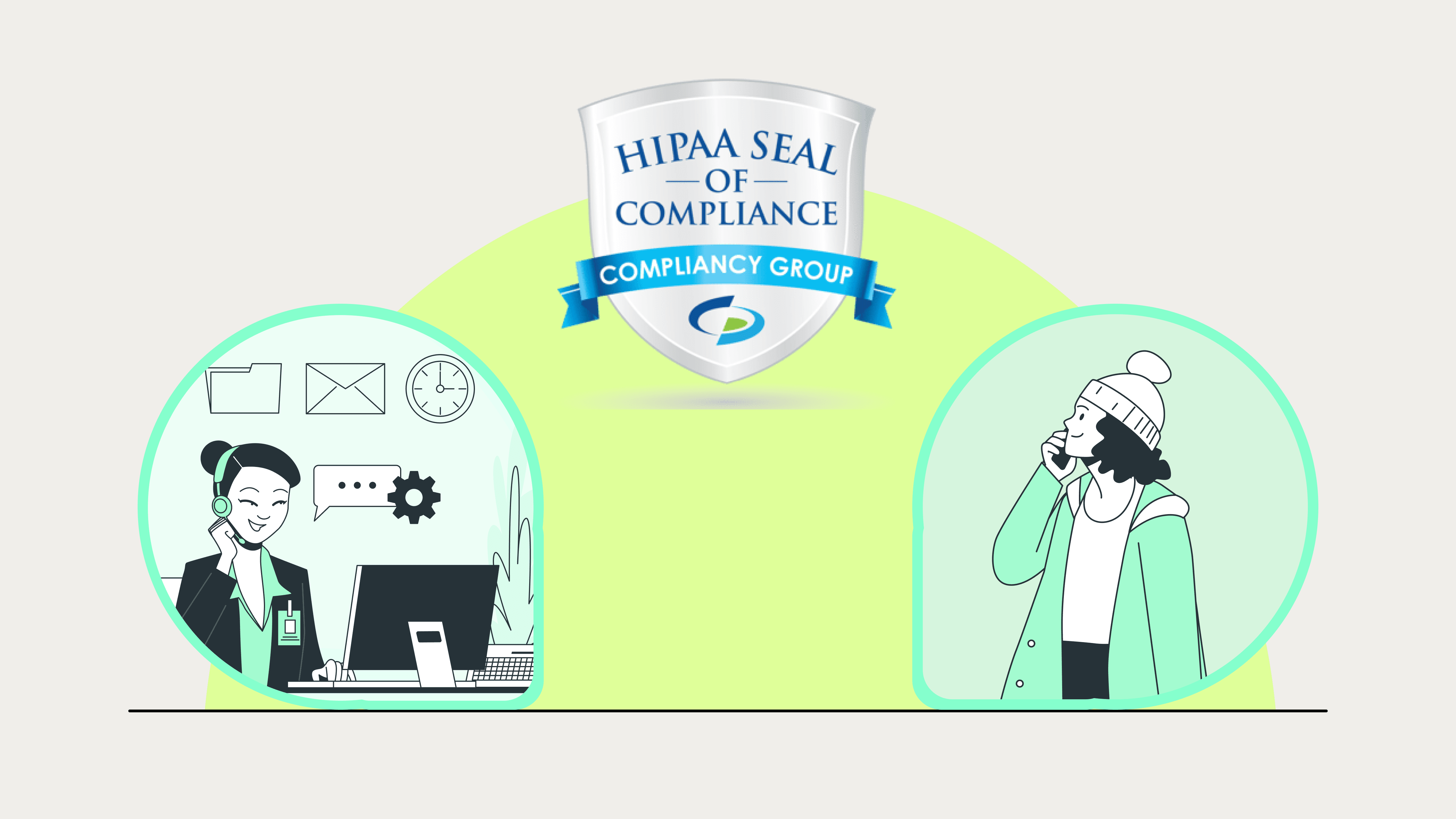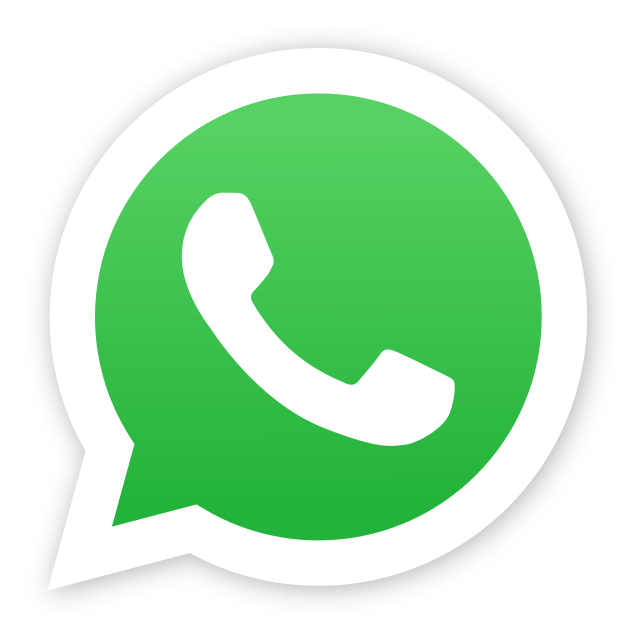A HIPAA-Compliant phone service is essential for the healthcare industry. It ensures complete privacy and confidentiality of patient information, which is non-negotiable when it comes to healthcare.
As a professional in the healthcare industry, you are probably aware of the perils of patient data breaches.
Unless you’re ready to bear any penalties and fines, you must ensure compliance with HIPAA rules. So, let’s understand what HIPAA compliance is all about and how you can make the most of a HIPAA-Compliant VoIP phone system.
What is HIPAA Compliance?
HIPAA stands for the Health Insurance Portability and Accountability Act of 1996. HIPAA compliances safeguard the privacy and integrity of patients.
The act is essentially a series of regulatory standards outlining the lawful use and disclosure of protected health information (PHI). It also covers ePHI or PHI that is transmitted, shared, stored, or received in any electronic format or media.
Since medical practitioners, as well as healthcare professionals, are bound to handle sensitive patient information, they must comply with HIPAA in the transmission, storage, or handling of protected health information.
Besides this, any other subcontractors, associates, or partners of business may also be dealing with PHI. Such entities also fall under the purview of this act and are required to sign the HIPAA compliance Business Associate Agreement (BAA).
To ensure that your organization is following HIPAA compliance, you need to stay updated about these aspects:
- Who falls under HIPAA guidelines?
- What kind of data is protected by these guidelines?
- What can you do with such data?
Using an efficient HIPAA-Compliant phone service will help you keep a check on these factors, guaranteeing that your organization is following HIPAA compliance guidelines.
If you want to figure out if your organization is subjected to the HIPAA guidelines, check out this list of organizations and/or individual practitioners that are expected to meet the HIPAA guidelines:
- Billing companies
- Practice management firms
- Third-party consultants
- Electronic health record platforms
- Managed service providers
- IT providers
- Faxing companies
- Shredding companies
- Physical storage providers
- Cloud storage providers
- Email hosting services
- Attorney
- Accountants
A HIPAA-Compliant phone service ensures that all ePHI transmitted or stored as voice messages, recorded calls, or other electronic data is secure from any potential threats.
In the next section, you’ll learn exactly how to apply the HIPAA guidelines to your communication systems.
Get a Free Agent Workflow Audit
What are the Four Main HIPAA Rules?
As mentioned, the HIPAA rules and regulations guide proper uses and disclosures of PHI, how to secure it, and what to do if there is a PHI breach.
Four primary rules impact the structure and meaning of the compliance requirements. If you want to cross-check what you need to stick to while using a HIPAA-Compliant phone service, go through the following rules:
1. The Privacy Rule
The Privacy Rule establishes national standards to protect individuals’ medical records and other personal health information that is held by covered entities and their business associates, such as a billing service or a cloud storage provider.
The rule also outlines the limitations in terms of usage and disclosure of such information that a business has to adhere to.
2. The Security Rule
This rule establishes national standards to safeguard individuals’ electronic personal health information created, received, used, or maintained by a covered entity.
It aims to protect the integrity and confidentiality of the ePHI through defined administrative, physical, and technical measures.
3. The Breach Notification Rule
The HIPAA Breach Notification Rule – followed by all HIPAA-Compliant phone systems – requires that healthcare organizations notify patients of any breach of protected health information that compromises their privacy or security.
The rule defines a series of steps any covered entity needs to take during a breach to stay in compliance.
The Breach Notification Rule consists of four main parts:
(i) Defining what a breach is – When is PHI compromised?
(ii) Regulating the timeframe for disclosure and notification of breaches.
(iii) Explaining what information must be disclosed, both to the affected individuals and the HHS (Department of Health and Human Services).
(iv) Defining the consequences for failing to comply with the rule, including fines for noncompliance.
4. The Omnibus Rule
One of the most recent HIPAA rules is also one of the most important ones. The Omnibus Rule expands the coverage of HIPAA regulations to anyone with access to PHI.
This rule impacts not only healthcare providers and their business associates but also subcontractors that work with PHI.
Are you Violating HIPAA Rules?
When organizations fail to comply with the rules and regulations stated in the Privacy, Security, Omnibus, and Breach Notification Rules, HIPAA violations occur. Here are some examples of HIPAA violations:
- When any action by the covered entity (or business associate) deliberately goes against the rules. For example, if an employee or a system discloses PHI without patient authorization, it is considered a HIPAA violation.
- When a covered entity unknowingly commits a mistake or violates HIPAA regulations due to negligence. In this case, it is not a deliberate attempt, but their actions do not comply with HIPAA standards.
- HIPAA violations can also occur if a covered entity fails to implement appropriate administrative, physical, and technical safeguards to protect PHI from unauthorized access, use, disclosure, or destruction.
- A HIPAA violation could occur if any covered entity fails to report a data breach within the timeframe specified by HIPAA guidelines. Certain data breaches must be reported to affected individuals, the Department of Health and Human Services (HHS), and, in some cases, the media as well.
In general, any action leading to a PHI breach is considered a HIPAA violation and could incur penalties for the offending party.
It’s important to note that HIPAA violations can result in substantial fines, legal penalties, and damage to an entity’s reputation.
To avoid HIPAA violations, covered entities must take all necessary steps to understand and comply with the rules set forth by HIPAA.
Stay HIPAA-Secure with JustCall
HIPAA Violations Tiers and Fines
HIPAA has set four violation tiers based on the violation’s gravity. Each tier has its specified range of associated penalties. The four Tiers of HIPAA Violations are:
- Tier 1 – Violations due to Lack of knowledge: This Tier covers violations that the entity in question was unaware of the breach and, in reality, could not have avoided. In certain cases, the Office for Civil Rights (OCR), at its discretion, can waive Tier 1 penalties. Fines for Tier 1 penalties range from $100 to $50,000.
- Tier 2 – Violations with Reasonable Cause: This tier covers violations that a covered business or entity should have been aware of but couldn’t avoid despite taking reasonable care to do so. Violations in this category are still not considered as wilful neglect, and penalties here range from $1000 to $50,000 with a cap of $100,000 in a single calendar year.
- Tier 3 – Wilful Neglets that were corrected in 30 days: Unlike Tier 1 and Tier 2, Tier 3 violations occur due to a covered entity’s wilful neglect of the HIPAA guidelines. If the entity in question takes measures to correct itself in 30 days, fines range from $10000 to $50,000 per violation and are capped at $250,000 for a single calendar year.
- Tier 4 – Wilful Neglets that were not corrected in 30 days: What separates a Tier 4 from a Tier 3 violation is that the entity in question has not attempted to remedy the violation even after 30 days. The penalties here range from $50,000 to $1.5 million and are capped are $1.5 million for a single calendar year.
HIPAA determines the amount of the fine by taking into account several factors, including the number of violations, the level of harm caused by the violation, the size of the covered entity, and the entity’s history of HIPAA compliance.
The goal of the HIPAA enforcement rule is to encourage covered entities to follow HIPAA regulations and take the necessary steps to secure Personal health information at all costs.
If the OCR determines that certain violations fall under the realm of criminal intent, the specific case is handed over to the Department of Justice (DOJ).
In such instances, criminal penalties can be applied to the directors, employees, or any officials associated with the entity that has committed the violation.
Consequences of Using a Non-HIPAA Compliant VoIP
Using a Voice over Internet Protocol (VoIP) system that is not HIPAA Compliant can have severe consequences for entities covered under HIPAA, including:
- Heavy financial penalties: Covered entities that use non-HIPAA-Compliant VoIP can be subject to significant fines for HIPAA violations. The penalties will depend on the nature and extent of the violation, and fines can range from $100 all the way to $1.5 million in the case of Tier 4 HIPAA violations.
- Legal liability: A non-HIPAA-Compliant VoIP can expose covered entities to legal liability if a data breach of PHI occurs. Patients with compromised PHI can take legal action against the covered entity.
- Loss of trust and reputation: HIPAA violations can harm a covered entity’s importance and damage patients’ belief in the entity’s ability to protect their PHI. This can result in a loss of patients and negatively impact the entity’s financial performance.
- Technical difficulties: Non-compliant VoIP systems may not be secure and vulnerable to hacking and cyberattacks. This can result in technical problems and loss of data.
In summary, covered entities need to use only HIPAA-Compliant VoIP systems to ensure the privacy and security of PHI.
Covered entities that fail to use compliant systems risk severe consequences, including financial penalties, legal liability, loss of trust and reputation, and technical difficulties.
What is a HIPAA-Compliant Phone Service, and How Does It Save You?
A HIPAA-Compliant phone service is specifically designed to meet the requirements of the Health Insurance Portability and Accountability Act (HIPAA).
HIPAA sets standards for protecting the privacy and security of PHI and imposes strict requirements on covered entities, such as healthcare providers and insurance companies, to handle and transmit PHI.
A HIPAA-compliant phone system can give you the following benefits.
- Voicemails
With cloud phone systems, healthcare organizations and medical practitioners can click and deliver information via voicemails to patients that are personal health folio-oriented.
In such cases, you breach HIPAA rules if the voicemail is not encrypted. This is where a HIPAA-Compliant phone number and system come to the rescue.
- Call Recordings
VoIP providers need to be HIPAA compliant because they could potentially record and store ePHI. With features like call recording, you can end up making a HIPAA violation if they are not adequately encrypted.
A HIPAA-Compliant phone number obtained via a HIPAA-Compliant VoIP service provider will ensure secure storage and transmission of PHI.
They also enforce proper access control and have frequent audit trails to ensure absolute HIPAA compliance.
Get a HIPAA-Compliant Phone System with JustCall
HIPAA Compliant Patient Communication in Healthcare
HIPAA-Compliant patient communication refers to the practices and procedures that healthcare providers must use to communicate with patients such that they comply with the privacy and security requirements set forth by HIPAA.
In the healthcare sector, patient communication can take place over a multitude of communication mediums, including in-person conversations, phone calls, text messages, emails, and other forms of electronic communication.
To be HIPAA-Compliant, patient communication must be secure and protected from unauthorized access or disclosure. This helps ensure that patients’ rights to privacy and confidentiality are respected and that healthcare providers comply with HIPAA regulations.
Is Your VoIP Phone System HIPAA Compliant?
HIPAA compliance is not restricted to health insurance companies and healthcare providers. Your VoIP phone system needs to be HIPAA compliant as well.
But, how do you know if you are using a HIPAA compliant VoIP?
Consider these questions to check if your VoIP phone is HIPAA-Compliant or not:
1. Does your VoIP phone provider extend Business Associate Agreement (BAA)?
By HIPAA rules, a VoIP phone service provider is considered a business associate. Compliance with HIPAA, in that sense, means VoIP phone providers need to sign Business Associate Agreements (BAA) with a covered entity.
2. Is your VoIP phone provider implementing data encryption?
ePHI is vulnerable, both during transmission and in storage. VoIP phone providers need to offer data encryption to keep ePHI secure.
3. Do your VoIP phone features allow sharing ePHI with unauthorized users?
Check this to avoid getting penalized. It is essential to let go of features that can potentially jeopardize ePHI.
4. Are your employees following HIPAA-Compliant calling and texting practices?
As a part of the rules, it is also important to train employees on HIPAA compliance and ensure they follow the right practices and procedures. Failing this can make you liable to penalization.
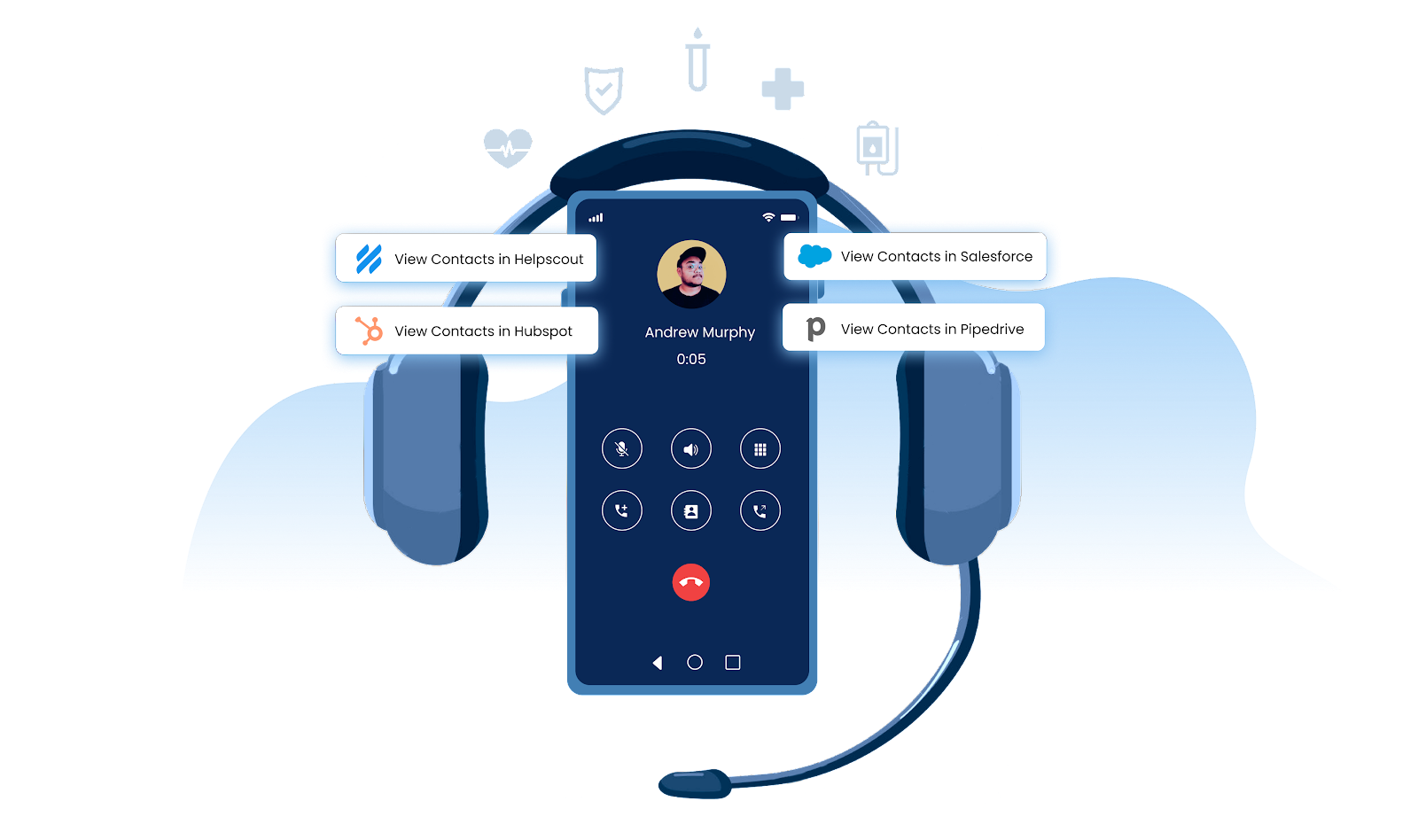

Look for a VoIP phone system that is HIPAA-Compliant to save you the hassles of penalties.
Guidelines for a HIPAA Compliant VoIP Phone System
Any HIPAA-Compliant VoIP phone system should prioritize safeguarding patients’ information, for which they need to follow a set of specific rules.
Whether you are already using a VoIP phone system or need to invest in one, it should be a HIPAA compliant VOIP. Most of all, it is important that every communication medium, including voice calls, texts, voice mails, and recordings, must be HIPAA compliant.
As per the rules mentioned under HIPAA, your VoIP phone system needs to comply with the following guidelines:
- Authentication: First, you need to ensure that only authorized users have access to ePHI so that confidential patient data is kept safe. For this, every phone line should have a unique user ID.
- Encryption: All patient data needs to be encrypted during transmission or sharing. This may be done with the help of high-level encryption technologies including virtual private network (VPN) or transport layer security (TLS).
- Business Associate Agreement (BAA): A HIPAA-Compliant VoIP phone system should be able to offer a business associate agreement (BAA) to clients in the healthcare industry.
- Secure Transmission and Storage of Call Recordings, Voicemails: Finally, it is important for VoIP phone systems to maintain the security of ePHI through voice recording encryptions, TLS, SIP security measures, secure elastic SIP trunking, and so on.
HIPAA-Compliant VoIP Phone Features
Sales and support teams need a competent tool for efficiently handling communications with customers. JustCall offers a suite of advanced phone features enabling teams to power up their efforts and build a well-integrated communication system.
Here’s a list of important features and functionalities you should look for when choosing a HIPAA compliant VoIP phone system:
1. Automated Dialing for Medical Sales Reps
Medical sales reps should ideally use the best HIPAA-Compliant phone system to ensure complete safety for their organization and patients.
They can easily opt for JustCall’s HIPAA-Compliant VoIP service for all their outbound calling operations.
JustCall comes with a sales dialer that automates the dialing process and removes the need to dial each customer manually. Thus, calling through HIPAA-Compliant phone numbers helps maintain security standards.
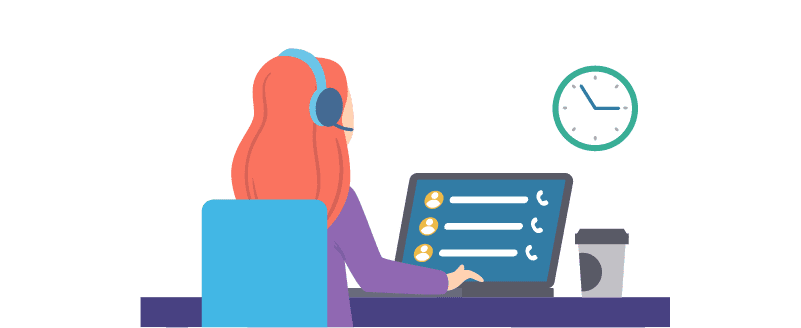

A more sophisticated version of the feature, the predictive dialer dials multiple numbers at the same time, eliminating all the unanswered numbers it comes across.
Recommended Read: Sales Dialer Software: Add Velocity to your Sales Process
2. Smart Call Routing
To meet inbound calling needs, you can rely on the smart call routing or distribution feature. It helps divert high volumes of calls into specific queues based on customer requirements and relays them further to the right department or agent.
At the same time, it can lead incoming callers to the voicemail box when none of the agents are available to answer.
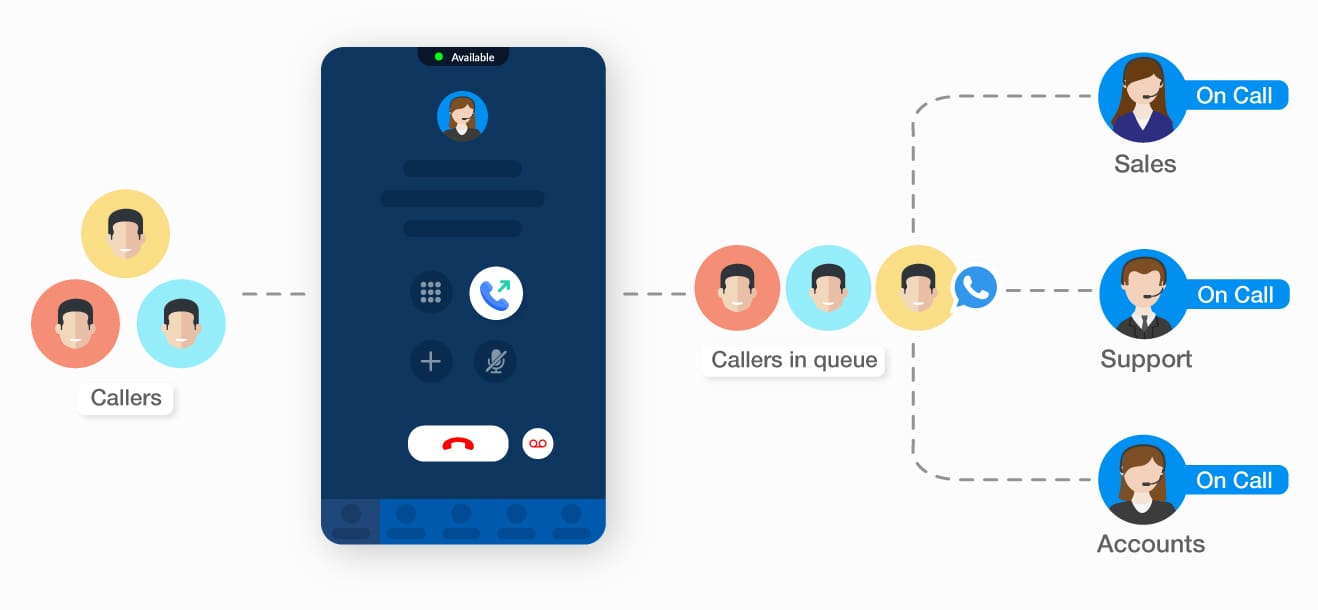

Recommended Read: What Is Automatic Call Distributor System: ACD Meaning & Benefits
3. Multi-level IVR Menu
The Interactive Voice Response (IVR) menu acts as a 24X7 auto attendant for your medical contact center.
Customers can navigate the IVR menu to reach the relevant agent. In this way, every query gets resolved quicker and customers go back satisfied.
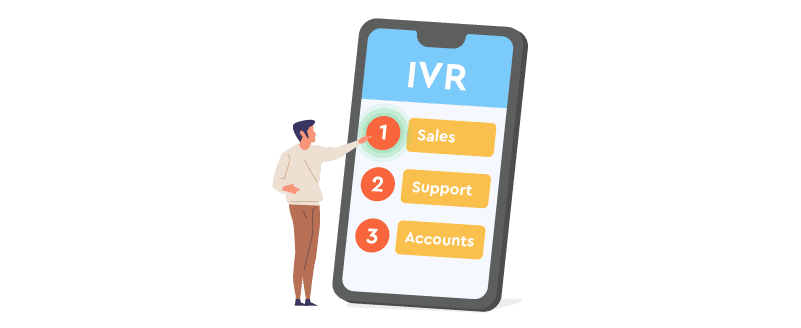

4. Bulk SMS
A VoIP phone system such as JustCall is not restricted just to calling. It also covers SMS and texting capabilities plus JustCall offers HIPAA-Compliant texting, enabling you to run bulk SMS campaigns effortlessly.
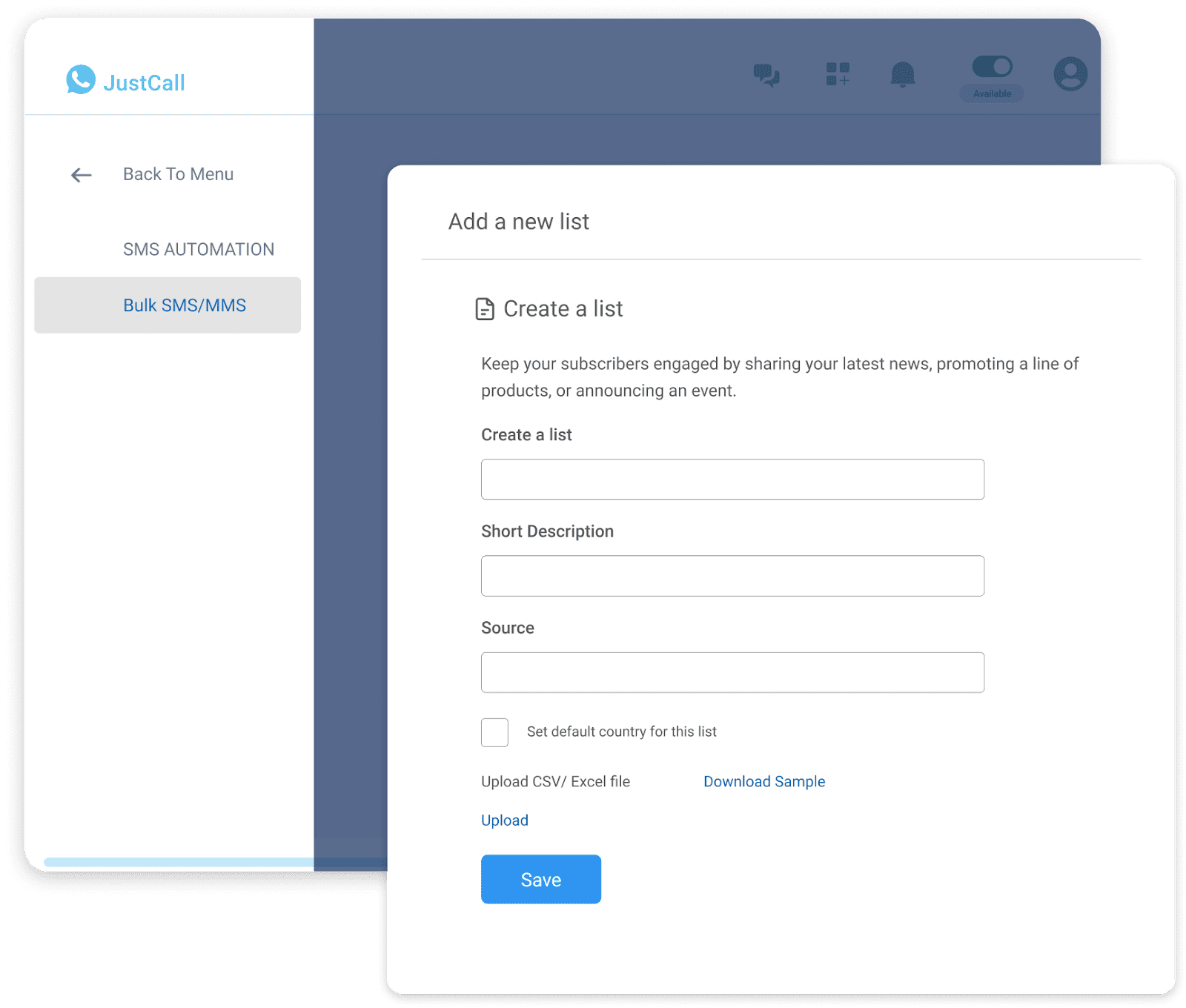

Recommended Read: How to Create A Bulk SMS Campaign in Minutes?
5. Live Call Monitoring and Analytics Dashboard
You can improve agents’ capabilities by tapping into call monitoring and analytics.
Real-time call monitoring enables managers to listen and/or join agents during live calls with customers.
Meanwhile, you can always listen to call recordings and keep an eye on other call center metrics and KPIs on the analytics dashboard.
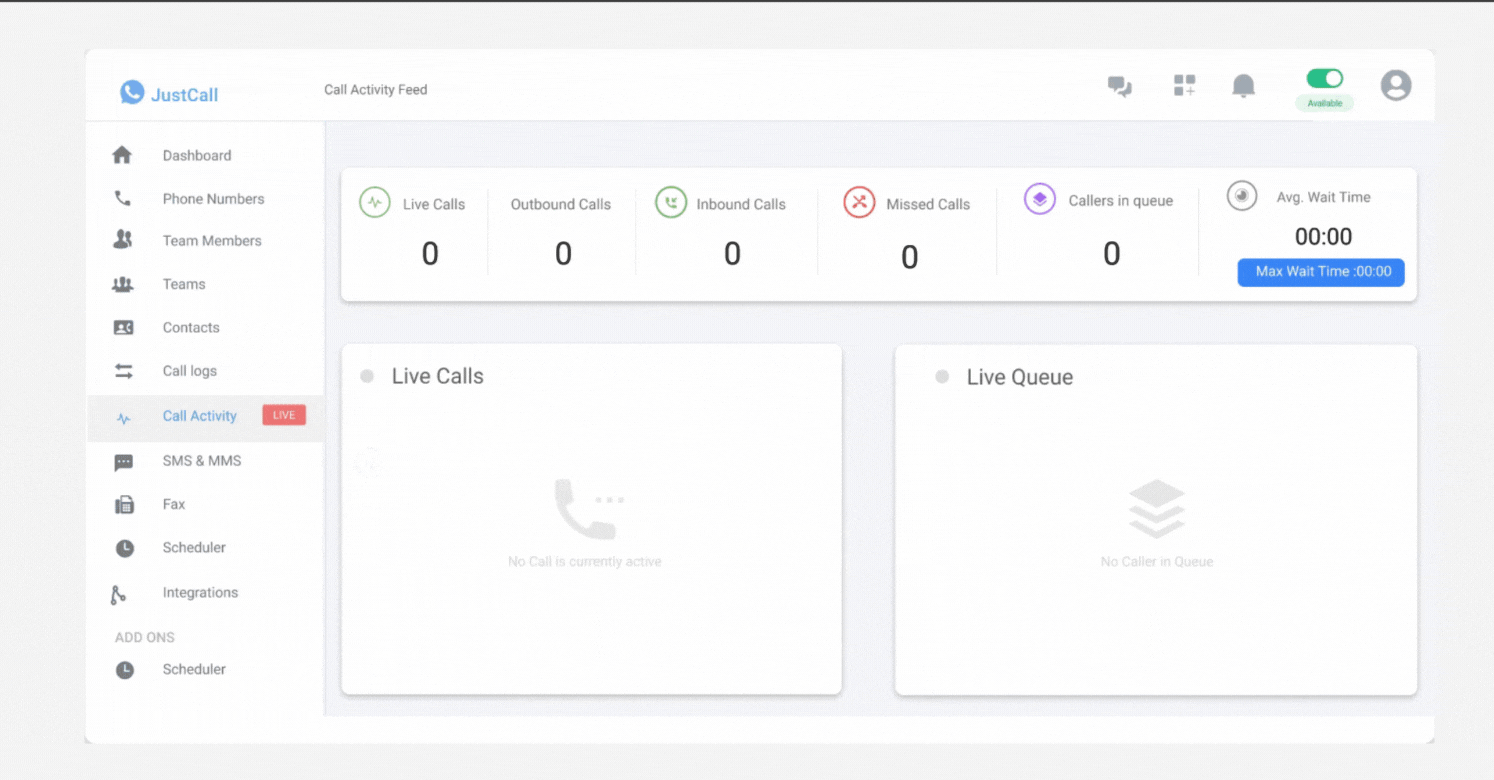

Recommended Read: Call Monitoring and Analytics: How to Turn Agents into Seasoned Experts
6. CRM and Business Tool Integrations
Your daily calling activities cannot happen in isolation from other business tools. You need CRM and other solutions to carry out all your operations.
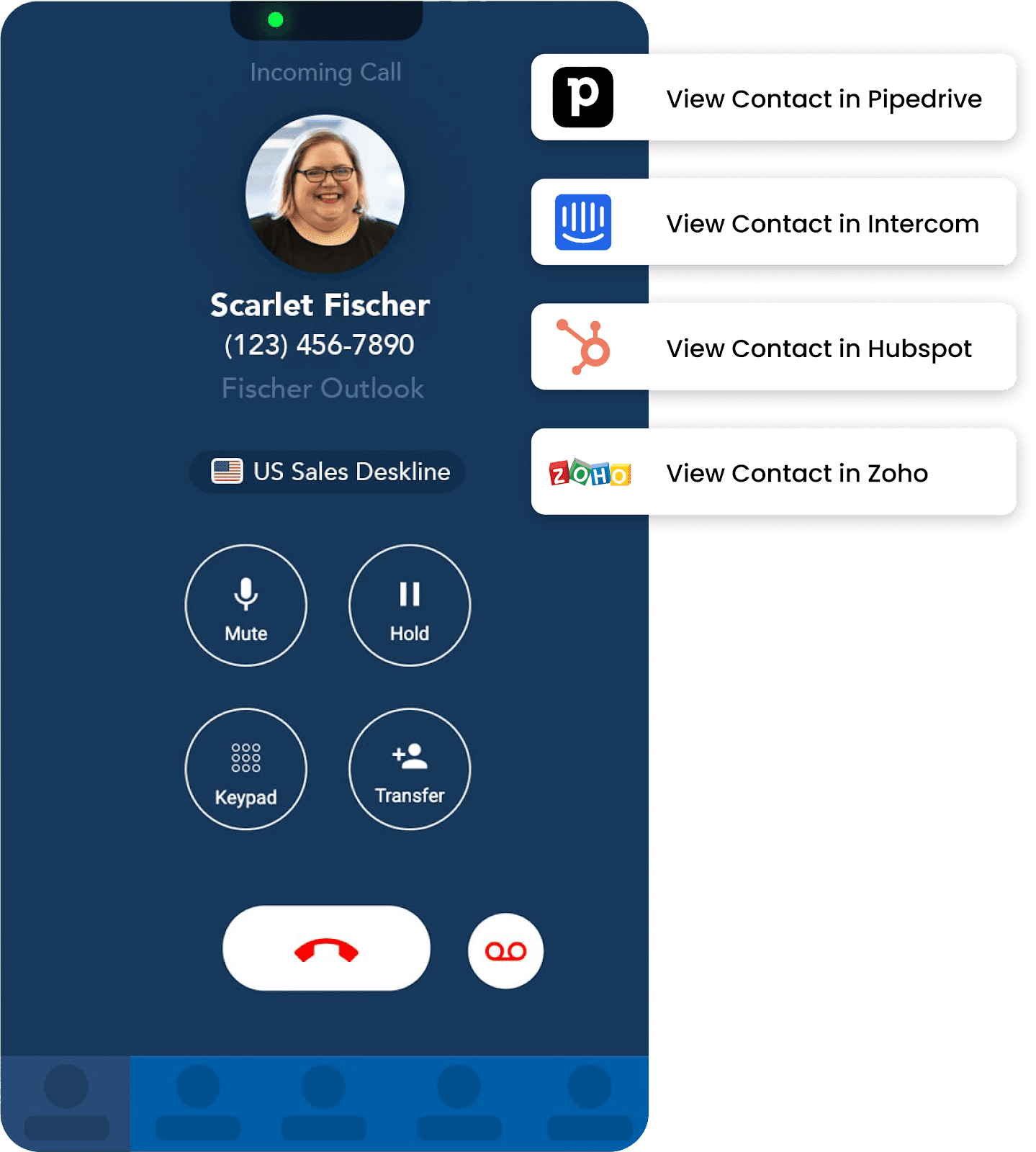

Having said that, swapping between third-party business tools and your phone system is very time-consuming.
Business Phone and CRM integration syncs all the information between the different tools. This removes the need for agents to go back and forth between the phone system and other tools.
HIPAA Compliant VoIP Phone Service: Best Practices
For the healthcare industry, integrating modern communication technology requires HIPAA compliance at various levels. This would mean carrying out HIPAA-compliant texting, calling, and voice recording.
To prevent the unlawful use or transmission of PHI, here are some of the best HIPAA compliance practices that VoIP phone providers should ideally be following:
1. Issuing BAA to Business Partners and Associates
VoIP phone providers should be able to issue Business Associate Agreements to third-party associates and vendors.
Securing patients’ data, in this situation, requires them to sign a Business Associate Agreement.
But, here’s the catch… Is your partner/associate actually well-versed with the HIPAA compliance requirements? Simply getting them to sign the agreement is not enough. Going through their compliance plan is going to be helpful here.
2. Training Your Team for HIPAA Compliance
It is important to train your team for HIPAA compliance. After all, the whole purpose of attaining HIPAA compliance goes in vain when your employees don’t even understand the rules covered under it.
Make sure all your employees are fully aware and well-versed with the HIPAA-Compliant policies and practices.
3. Control Access to Data
Prevent unauthorized access to sensitive patient information. For this, you can turn off features that may send or transmit patients’ information to unauthorized users.
4. Record Every Interaction
Make sure to record every interaction with customers.
As a matter of fact, these interactions need to be recorded for future reference. Having said that, only authorized users will get access to these, as stated under HIPAA.
10 HIPAA Provisions that Need to Be Covered
Here are ten primary provisions that VoIP providers and organizations need to cover to be HIPAA compliant.
1. Administrative Safeguards
This provision requires organizations to establish policies and procedures to ensure the confidentiality, integrity, and availability of ePHI. This includes having an administrative plan to respond to data breaches, perform risk assessments, and implement access controls and audit trails to monitor ePHI.
Organizations must implement administrative and technical safeguards to protect health information and provide patients with access to their health information upon request.
They must also implement procedures for responding to privacy complaints and provide patients with a notice of privacy practices that outlines their rights and the organization’s privacy policies.
2. Physical Safeguards
The security rule requires organizations to implement technical and physical safeguards to protect health information stored or transmitted electronically. This includes implementing firewalls, access controls, and encryption to protect electronic health information from unauthorized access or theft.
Organizations must also regularly assess their security systems to ensure that they adequately protect health information and have an incident response plan to address any security breaches.
3. Notification of Breaches
Organizations must have procedures to notify individuals if they breach their PHI as soon as possible.
The report must be provided promptly and include details about the information that was compromised and the steps individuals can take to protect themselves.
4. Data Disposal
Organizations must implement procedures for the secure disposal of health information to prevent unauthorized access or disclosure of the information. This includes destroying physical records, erasing electronic records, and properly disposing of any storage media containing PHI.
5. Access Controls
Organizations must implement access controls to limit access to PHI to only those who need it to perform their job duties. This includes controlling who has access to the PHI, how access is granted, and how access is revoked.
6. Auditing
Organizations must implement auditing procedures to monitor health information access and detect unauthorized access or disclosures. This includes maintaining logs of who has access to health information when accessed, and what has been done with it.
Auditing PHI access regularly helps organizations detect unauthorized access or disclosures and ensures that individuals’ PHI is protected from unauthorized access or misuse.
Furthermore, by implementing these HIPAA provisions, organizations can help ensure that they protect the privacy and security of health information while adhering to HIPAA regulations.
7. Transmission Security
Organizations must ensure the confidentiality and integrity of ePHI when it is transmitted over an electronic network under this provision.
When ePHI is transmitted from one location to another, it must be protected from unauthorized access, modification, or destruction.
Organizations can meet this requirement by using secure transmission protocols that encrypt data in transit, such as Secure Sockets Layer (SSL) or Transport Layer Security (TLS). They must also ensure that all ePHI-containing electronic communications are sent over secure networks and that any ePHI stored is encrypted.
8. Data Backup and Disaster Recovery
This provision requires organizations to establish and implement procedures for backing up and recovering ePHI in case of a disaster or data loss. This ensures that critical health information is not lost during a system failure or data breach.
Organizations must have a data backup and disaster recovery plan that outlines procedures for backing up and recovering ePHI and regularly test their goal to ensure its effectiveness. They must also ensure that backup copies of ePHI are stored securely and that they can restore ePHI promptly in the event of a disaster.
9. Data Breaches
This provision requires organizations to implement reporting procedures and respond to data breaches and unauthorized access to ePHI.
Organizations must take immediate action in a data breach to secure the data and limit the damage.
Organizations must have a data breach response plan outlining procedures for reporting and responding to data breaches. They must also notify affected individuals and the Department of Health and Human Services (HHS) of the breach, as required by law.
Regularly reviewing and updating their data breach response plan is also essential to ensure its effectiveness.
10. Training and Awareness
This provision requires organizations to provide regular training and awareness programs to educate employees on HIPAA regulations and the importance of protecting ePHI.
It aims to raise awareness of the critical importance of protecting sensitive health information and ensure that all employees understand their role in maintaining HIPAA compliance.
Organizations must provide the following:
- Regular training and awareness programs on HIPAA regulations
- Security best practices
- The importance of protecting ePHI
They must also regularly communicate security reminders and updates to employees to help keep them informed and aware of the latest security threats and best practices.
What is the Pricing for HIPAA-Compliant Solutions?
The cost of a HIPAA-C
Compliant solution varies greatly depending on the VoIP service provider, the organization’s size, and the specific features and security measures included.
Some vendors provide tiered pricing based on the number of users, whereas others may offer custom pricing based on the organization’s specific needs.
HIPAA-Compliant solutions are generally more expensive than non-compliant solutions due to the additional security measures and higher levels of support required to comply with HIPAA regulations.
It’s best to contact the service provider directly or get quotes from multiple HIPAA-Compliant VoIP providers to get an accurate cost estimate.
The Most Powerful HIPPA Compliant Communication Platform
How Does HIPAA Apply to Unified Communications?
The integration of multiple communication channels, such as voice, video, and messaging, into a single platform is referred to as unified communications.
Phone systems, video conferencing, instant messaging, and other communication tools used in healthcare are examples of this.
A unified communications solution must be HIPAA compliant in order to meet specific standards for protecting PHI, such as the implementation of technical and administrative safeguards to prevent unauthorized access to PHI and security measures to prevent data breaches and unauthorized disclosure of PHI.
HIPAA-Compliant VoIP Phone System by JustCall
If you are wondering how to get HIPAA compliance and looking for the best HIPAA-Compliant phone service, your search ends here.
To ensure the confidentiality and integrity of ePHI, JustCall has adopted the following practices:
Business Associate Agreements (BAA)
JustCall extends Business Associate Agreements (BAA) to third-party vendors and business associates for ensuring complete compliance with HIPAA.
Secure Transmission and Storage of ePHI with Data Encryption
JustCall encrypts data at rest and in motion to protect ePHI. Patients’ data gets converted into indecipherable codes through high-level storage and encryption technologies including Transport Layer Security (TLS) and AES-256.
Authorized Access to Patients’ Data
Enhanced security becomes possible with access controls. JustCall validates internal security through role-based permissions such as manager, admin, etc.
All production data is in a VPC (virtual private cloud). Internal access is firewalled and users must be authenticated on the VPC and via multi-factor authentication to access anything.
JustCall serves as a complete contact center software for healthcare providers. Its VoIP business phone system encompasses a range of features catering to healthcare sales and support teams.







